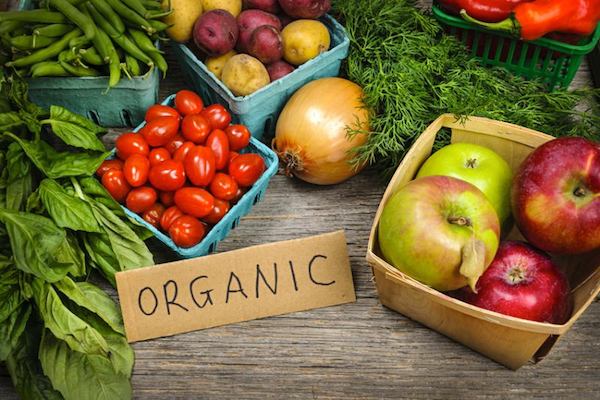Go Organic this September

It’s Organic September. This is an initiative started by the Soil Association that encourages consumers to make one small change to their shopping habits and collectively create waves on the health and sustainability of our food system. What does organic mean? Put simply, it means working with the environment and not against it. So why not Go Organic and see how you feel.
Why is Organic better for us?
We live in a world where we come into contact with synthetic chemicals on a frequent basis – in our food, wine, toothpaste, the list goes on. A great deal of these cause side-effects in the environment where they are applied or to human health. The impact of natural versus synthetic chemicals on people and the environment is still a grey area, however it is unrefuted that most of the research and development of synthetic chemicals is funded by agribusiness. This bias means the research on organic and other sustainable farming methods such as permaculture and biodynamic is underfunded.
An 18 year study on neonicotinoids released in August links the pesticides to bee colony collapse. As organic farming avoids the use of these pesticides, spending your money on organic produce is one way to make sure we help to reduce our dependence on these pesticides and protect the survival of this very important species.
The added benefit: it tastes great!
For me, organic food tastes better. Organic food is crisper, sweeter and juicier than any non-organic product I have purchased.
It’s also nutritionally better for you. A team in Newcastle has recently analysed the compositional differences of crops in 343 studies and found that switching to organic food would provide additional antioxidants equivalent to eating between 1-2 extra portions of fruit and vegetables a day. The same antioxidants that help to reduce your risk of cardiovascular disease, certain cancers and neurodegenerative diseases.
The dirty dozen and clean 15
 You don’t have to go 100% organic to reap some of these benefits and it doesn’t have to cost you a lot more, especially if you think of the long-term nutritional and health benefits. To make a small change to your shopping habits, refer to the Environmental Working Group‘s “dirty dozen and clean 15” that is updated each year.
You don’t have to go 100% organic to reap some of these benefits and it doesn’t have to cost you a lot more, especially if you think of the long-term nutritional and health benefits. To make a small change to your shopping habits, refer to the Environmental Working Group‘s “dirty dozen and clean 15” that is updated each year.
If organic is not readily available in your area, form a co-op with your neighbours and bulk buy produce to save some money. Seek out or ask your local council to set up a farmers market. And of course, if you are in Bristol then visit Better Food. You then also have the added bonus of supporting local business. Whatever you do, get creative and give organic a try.
A CNM trained Nutritional Therapist, Gemma has always had a love of good food, but her interest in its healing power really peaked after having children and wanting to know the best ways in which to build strong, healthy immune systems. Gemma is passionate about helping people to reach their full potential, at any stage of life.
Gemma Griffin at Whole Health Nutrition UK
Mobile: 07906 322 310
Email: gemma@wholehealthnutritionuk.com
Web: www.wholehealthnutritionuk.com
Tags: Organic, organic farming, organic september
